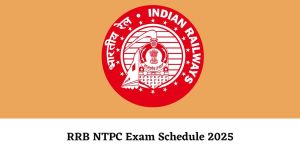Sung Kook "Bill" Hwang, the architect of the once-mighty Archegos Capital Management, faced the gavel of justice as he was sentenced to 18 years behind bars for his role in one of the most colossal frauds seen on Wall Street. This sentencing, which came down on November 20, 2024, by U.S. District Judge Alvin Hellerstein, marked the culmination of Hwang's dramatic fall from grace—one which not only wiped out his firm but also inflicted approximately $10 billion in losses upon several major banks.
Hwang, convicted on 10 counts of fraud, market manipulation, and racketeering, was found guilty after jurors deliberated for nearly two days following his two-month trial. Prosecutors presented compelling evidence, painting Hwang as the mastermind behind the manipulation of stock prices for various firms, including ViacomCBS and Discovery, which were pivotal to his trading operations. By misrepresenting the profits and assets of Archegos, he reportedly inflated his investments from $1.5 billion to around $35 billion within a single year. But this lofty ascent came at the expense of others, leading to disastrous consequences when the firm's leveraged positions collapsed, sparking losses across the financial sector.
Hwang’s saga began long before the markets reeled from Archegos' demise. He initiated his financial career through Tiger Asia Management, a hedge fund he had to shutter after facing significant allegations of insider trading and market manipulation from regulators. His subsequent establishment of Archegos was structured as a family office, thereby escaping many regulatory oversight mechanisms. While he projected stability and growth, behind the curtains, his methods were increasingly perilous.
What led to the monumental downfall? A series of highly leveraged investments turned sour when Hwang failed to meet margin calls, resulting in forced liquidations of positions valued at around $30 billion. This fire sale not only led to staggering losses for Hwang, who personally lost most of his wealth, but also sent shockwaves through global banking giants such as Credit Suisse and Nomura, which faced considerable financial turmoil as brokers for Archegos.
During the sentencing, Hwang expressed remorse, stating, "I feel really terrible for what happened." He maneuvered between acknowledging his charity work—a factor Judge Hellerstein considered—while still being branded as someone who executed systematic fraud. The judge underscored the severity of Hwang’s actions, citing the fraud's extensive reach and its effect on the fiduciary responsibilities owed to banks and investors alike. Despite Hwang’s pleas for leniency, the loss of trust and the enormity of the crime weighed heavily on the judge's decision.
Hwang's defense team argued vehemently against the notion of him being seen solely as the perpetrator of financial havoc. They claimed he was deeply impacted by his firm's collapse, even going so far as to describe him as one of the largest victims of the fallout. His lawyers insisted he had no intention of misleading financial institutions and merely had faith in the securities he invested in. They likened his practices to those of many high-risk traders who operate within the fine lines of legality. His track record of charitable contributions was brought forth as evidence of his character as someone with positive intentions.
Judge Hellerstein, grappling with the contrasting narratives of Hwang's life, noted the dichotomy of being both “a charitable man” and someone who committed “a dreadful crime.” The national conversation swirling around high-stakes finance and the ethical obligations of fund managers has prompted calls for stricter regulations following such high-profile collapses. The losses at Archegos’ hands have not only spotlighted the need for more stringent oversight of family offices, but also serve as cautionary tales for investors drawn to the allure of fast returns. Following Hwang's sentencing, the focus now shifts to the potential restitution payments, with discussions set to continue as legal teams prepare briefs to delineate the financial outlays Hwang will need to address.
Looking forward, Hwang's legal troubles are far from settled. He has expressed intentions to appeal his conviction, maintaining his stance of innocence. Whether the legal system will support his claims is yet to be seen, but the legal and moral lessons drawn from the Archegos debacle will likely influence the contours of U.S. securities law for years to come.
Interestingly, Hwang’s predicament resonates beyond just his personal fate. Financial analysts and commentators are already speculating on the refreshed interest from regulators aimed at preventing such outrageous activities from occurring again. Hwang's downfall serves as both a reflective moment for Wall Street and potentially the precursor for sweeping reforms aimed at safeguarding investors’ interests and restoring confidence amid the often tumultuous waters of financial markets.
Meanwhile, as Hwang prepares to navigate his lengthy prison sentence, the wider investment community will be watching closely. The repercussions of Hwang's actions have left many questioning the integrity of high finance and the regulatory frameworks intended to keep both investors and the market secure. Learning from Hwang’s miscalculations might pave the way for future safeguards against financial malpractice.



